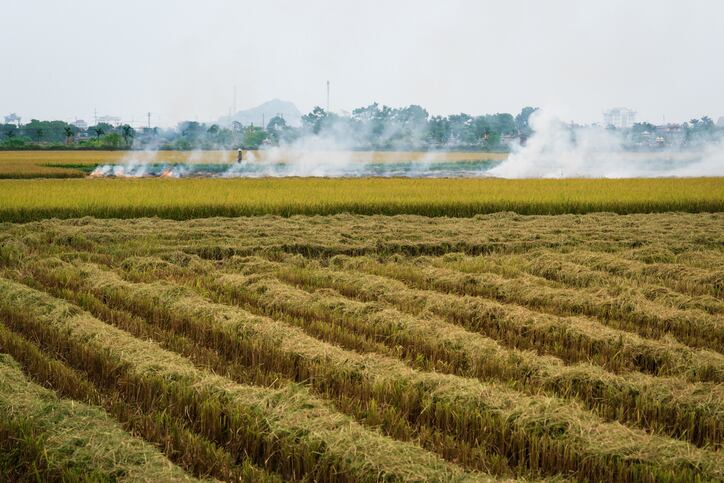The global F&B giant has unveiled the 10 companies selected for this year’s cohort, based on their ability to deliver innovative solutions in sustainable agriculture, circular economy, and climate action.
Each finalist was chosen for their unique approach to addressing environmental and sustainability challenges - key criteria aligning with PepsiCo's transformative pep+ (PepsiCo Positive) initiative.
In 2024, PepsiCo has expanded the APAC Greenhouse Accelerator Program to include a critical new focus area: sustainable agriculture. Recognizing the essential role that agriculture plays in our food systems, PepsiCo has identified two trailblazing startups from this sector as finalists, each contributing innovative approaches to sustainable farming practices.
The 10 companies are:
Takachar – The Philippines
Takachar enables communities to turn their crop and forest residues into higher-value, carbon-negative bioproducts such as fertilizers, chemicals, and biofuels in a small-scale, decentralized, self-sufficient manner, thereby uniquely advancing climate justice. They develop small-scale, low-cost, portable systems that latch onto the back of tractors and pick-up trucks and deploy to rural, hard-to-access regions, enabling self-sufficient rural bioeconomies, and preventing air pollution and carbon footprint associated with open-air biomass burning.
Alternō – Vietnam
Alternō is dedicated to pioneering sustainable solutions that significantly reduce carbon emissions in the sectors of agriculture, industry, and residential heating. Alternō was founded with a vision to create Asia's first low-cost thermal energy storage solution for renewable energy, to be deployed widely across the region by 2050.
Wildfire Energy – Australia
An innovative Australian company developing a revolutionary gasification technology for biomass and waste to energy applications, Wildfire has developed a novel, proprietary gasification process to enable cost effective conversion of low value biomass and waste feedstocks into high quality syngas for electricity generation and production of fuels and chemicals.
Mi Terro – China
Mi Terro engineers low-value biomass waste into high-value hydrophilic and hydrophobic biomaterials to end microplastics and hunger at cheaper price than conventional plastic. Mi Terro uses a selection of biopolymers and natural fibers with the aim of maximizing the use of agricultural side streams (non-food feedstock) and certified biomasses.
CIRAC - Thailand
CIRAC provides a breakthrough technology for recycling one of the most difficult to be recycled packaging waste, aluminium laminated plastic packaging. CIRAC’s technology recycles aluminum laminated plastic into sustainable aluminium and heavy oil.
X-Centric – Australia
X-Centric is developing high performance soil testing instruments for accurate, precise and low-cost soil characterisation. Think about it like taking an “X-ray” of your soil to assess its health. X-Centric’s instrumentation, coupled with their mobile app and dashboard provide a fast one stop shop solution to your soil characterization needs.
Grac – Vietnam
Grac provides affordable waste and recycling solutions for local governments, businesses seeking a smarter, sustainable alternative. Grac was born to design the most suitable waste management model in Vietnam and developing countries. Grac makes an important contribution to reducing waste, separating waste at source, reducing GHG emissions and building a circular economy.
AIIEV- Thailand
AIIEV empowers businesses in Thailand to achieve sustainability and cost savings through a game-changing subscription model for electric conversions, extending the life of existing commercial vehicles.
ELIoT Energy – Australia
ELIoT Energy is decarbonizing the food and beverage industry by tackling Scope-3 emissions through cutting-edge energy-shifting devices that optimize green energy usage in point-of-sale cooling appliances. With their innovative plug'n'play batteries, ELIoT seeks to revolutionise the way energy is consumed in refrigeration systems.
Captivate Technology – New Zealand
Captivate’s patented MUF-16 material reduces CAPEX and OPEX costs in modular carbon capture units. MUF-16 stacks up both technically and financially, delivering both environmental and economic benefits, says the firm.
In a significant step to widen the scope of the program further, PepsiCo has also forged new partnerships with its bottlers Suntory PepsiCo Beverage in Thailand and Vietnam, which both are strongly committed to creating positive impact on the environment and driving impactful sustainability initiatives across their operations. These alliances aim to deepen the sustainability efforts across the region by engaging stakeholders and amplifying the scope of impact through collaborative action.
“As we welcome the newest cohort of start-ups to the APAC Greenhouse Accelerator Program 2024, I’m excited about the potential these innovators bring,” stated Wern-Yuen Tan, CEO of PepsiCo APAC and Chief Commercial Officer.
“Their inventive solutions are tackling pivotal issues within the circular economy, sustainable agriculture, and climate change — all of which are critical to our pep+ agenda. We're optimistic about the prospects of how these partnerships will expedite progress. This year, our collaboration with bottlers has significantly expanded our ability to pilot and scale these innovative solutions across a broader spectrum.”
The 2023 APAC edition saw seven pilots across the PepsiCo network, which drove 110% growth in six months for the finalists, along with USD1.5 million in sales growth.




